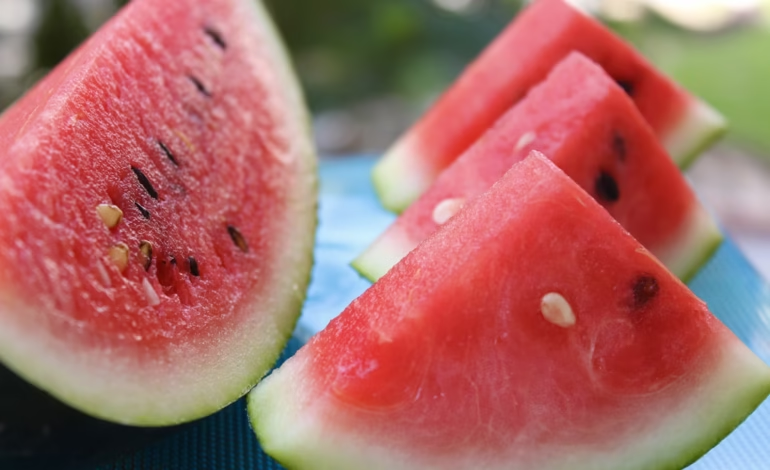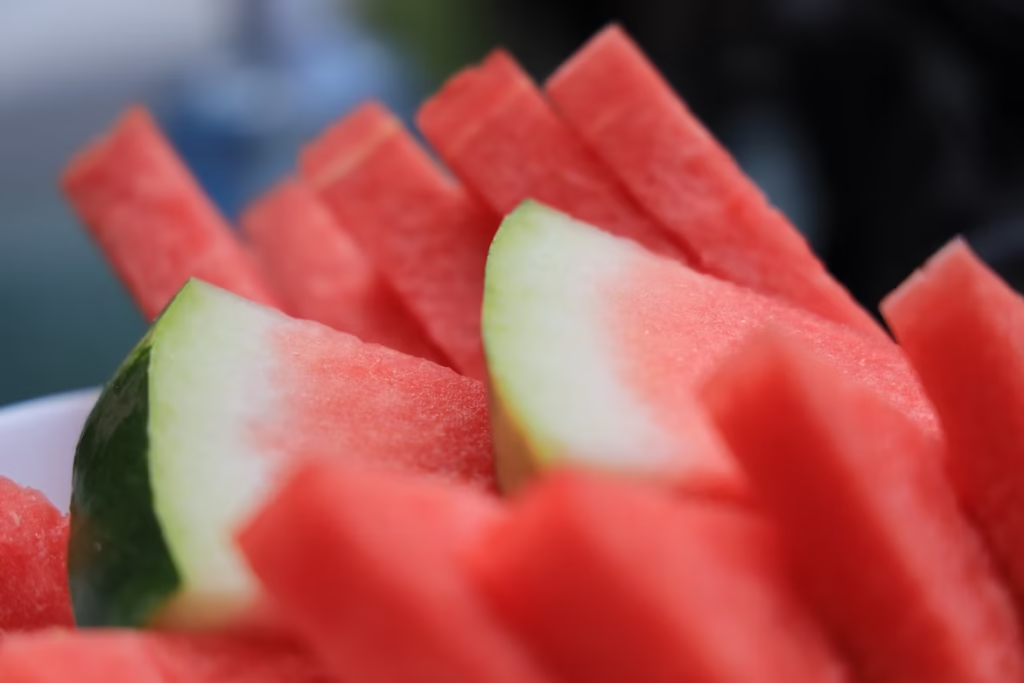What Watermelon Really Does to Your Body: The Sweet Health Secret Hiding in Every Slice
From Summer Snack to Superfruit: My Watermelon Wake-Up Call Let’s be honest—when you think of health-boosting superfoods, watermelon probably doesn’t make the top of your list. For years, I thought

From Summer Snack to Superfruit: My Watermelon Wake-Up Call
Let’s be honest—when you think of health-boosting superfoods, watermelon probably doesn’t make the top of your list. For years, I thought of it as a pretty, juicy treat—great for barbecues, beach days, or decorating a fruit platter. Refreshing? Sure. But functional? Not so much.
That changed when I started digging into the science behind watermelon. What I found was surprising: this vibrant pink fruit is far more powerful than its picnic-table reputation lets on. From muscle recovery to heart health and even skincare, watermelon is one of nature’s most underestimated wellness allies.
Here’s why you might want to look at watermelon as more than just summer eye candy.
What’s in a Watermelon? A Nutritional Overview
Despite being over 90% water, watermelon is loaded with vital nutrients and bioactive compounds that deliver real health benefits.
Key Nutrients in Watermelon:
- Vitamin C – Supports immunity and skin health
- Vitamin A – Essential for vision and skin regeneration
- Potassium – Helps regulate blood pressure and fluid balance
- Magnesium – Supports muscle and nerve function
- Lycopene – A powerful antioxidant linked to heart and prostate health
- Citrulline – An amino acid that improves blood flow and reduces muscle soreness
- Hydration – One of the most hydrating fruits you can eat
Low in calories and fat-free, watermelon is also naturally sweet—making it an ideal choice for those trying to satisfy sugar cravings in a healthy way.
1. Watermelon for Hydration and Electrolyte Balance

Hydration is the foundation of health—from digestion and energy to skin elasticity and cognitive clarity. Watermelon’s high water content and natural electrolytes (like potassium and magnesium) make it a smart choice for:
- Post-workout recovery
- Hot summer days
- Rehydrating after illness or dehydration
- Supporting kidney function
Unlike sugary sports drinks, watermelon rehydrates without added chemicals or synthetic flavors.
2. Watermelon for Heart Health: More Than Just a Pretty Face
Watermelon contains lycopene, the antioxidant that gives it its pink-red color. Lycopene has been studied for its ability to:
- Lower LDL (“bad”) cholesterol
- Reduce oxidative stress
- Improve blood vessel function
- Support prostate and cardiovascular health
Several studies show that lycopene may help reduce the risk of heart disease, the leading cause of death globally.
Plus, citrulline, a unique amino acid in watermelon, helps your body produce nitric oxide, which relaxes blood vessels and can naturally lower blood pressure.
3. Muscle Recovery and Athletic Performance
Citrulline also plays a key role in reducing muscle soreness and improving exercise performance. In fact, a 2013 study found that athletes who drank natural watermelon juice before workouts experienced less muscle soreness and quicker recovery.
This makes watermelon a great pre- or post-workout snack, especially when combined with a little protein for sustained recovery.
4. Skin Health: The Inside-Out Glow
Watermelon’s combination of vitamin C, A, lycopene, and water content can benefit your skin in several ways:
- Vitamin C supports collagen production
- Lycopene helps protect skin from UV damage
- Hydration plumps and refreshes the skin naturally
- Antioxidants reduce inflammation and may slow signs of aging
Some beauty brands even use watermelon extract in skincare, but eating it is a great first step for radiant, hydrated skin.
5. Digestive Health and Gut Friendliness
Watermelon contains a small but meaningful amount of natural fiber, aiding digestion and promoting regularity. Its high water content also helps prevent constipation and bloating.
Unlike many acidic fruits, watermelon is gentle on the stomach, making it suitable for those with sensitive digestion or recovering from illness.
Read About: Mango Magic: The Tropical Fruit That Could Help Lower Blood Pressure in Postmenopausal Women
How to Choose and Eat Watermelon for Maximum Benefit
Shopping Tips:
- Choose watermelons with a deep yellow field spot (this shows ripeness).
- A hollow sound when tapped often indicates a juicy, ripe fruit.
- Look for dull, not shiny skin—shiny may indicate under-ripeness.
Ways to Eat It:
- Fresh cubes or wedges (obviously!)
- Watermelon juice or smoothies
- Watermelon + feta + mint salad (a refreshing, electrolyte-packed combo)
- Grilled watermelon for a smoky-sweet twist
- Watermelon ice cubes or popsicles for hydration with flair
Who Should Be Cautious?
Watermelon is generally safe for most people, but those with diabetes or insulin resistance should watch portion sizes due to its high glycemic index—even though it’s relatively low in calories.
Eating it with healthy fats or protein (like nuts or cheese) can help slow down sugar absorption.
Some Thoughts: Watermelon Is More Than Just Summer Filler
As someone who once dismissed watermelon as “just water and sugar,” I’ve done a 180. It’s a low-calorie, nutrient-dense powerhouse that supports hydration, heart health, skin radiance, muscle recovery, and digestive balance.
It turns out, every juicy bite is doing more for your body than you think.
So next time you reach for a slice, know you’re
not just indulging in a seasonal treat—you’re feeding your cells, nourishing your skin, and hydrating your future.
And honestly? That makes watermelon taste even sweeter.
By Izzy Malcolm for Ravoke.com








